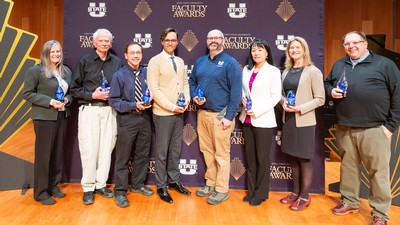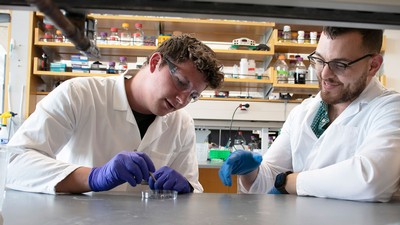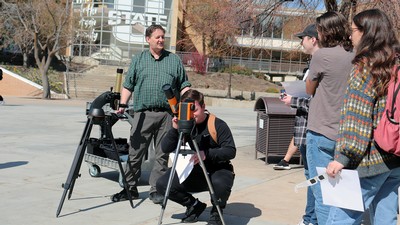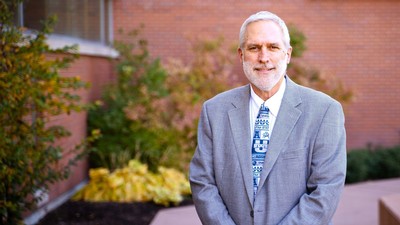Sunrise Session in Salt Lake City Features Fred Provenza April 9
Utah State University’s Sunrise Sessions are breakfast lectures held quarterly in Salt Lake City and are designed to highlight timely and cutting-edge research conducted at USU. The sessions are sponsored by Regence BlueCross BlueShield of Utah and are free and open to the public.
Featured next is Fred Provenza, emeritus professor of wildland resources, who presents “The Web of Life: How Behavior Connects Humans, Animals, and Landscapes” Friday, April 9. The breakfast research session gets underway at 7:30 a.m. at the Little America Hotel, 500 S. Main, Salt Lake City.
Obesity, rising health costs, budget shortfall and fossil fuel consumption are among the more troubling issues facing humanity today, and cures for these ills are sought by governments and think tanks worldwide. But according to Utah State University researcher Fred Provenza, a major solution for each of these may lie with one overlooked group: livestock.
In recent decades, food production practices have become enormously more complex and costly. With advances in production, processing and distribution, it now takes 23 times more fossil fuel energy than it did in 1940 to produce each calorie of supermarket food — food generally less nutritious now than it was then, said Provenza. Not unrelated, he continued, is the ballooning of health care spending from 5 percent of our national budget in 1960 to 16 percent now.
The health of humans, animals and landscapes is inextricably connected, and when we understand, encourage and exploit species’ natural behaviors, all parties benefit, Provenza said. He demonstrated that encouraging individuality for herbivores can present situations which both reduce costs and enhance biodiversity in the soil. Such biodiversity then promotes health for plants, animals and humans.
For example, Provenza’s research shows how a rancher may train a cow to crave a certain species of destructive weeds. The cow then keeps the weeds in check, and the weeds give the cow valuable secondary compounds that she can’t get from feed. The compounds not only boost her health, but also the nutritional value and taste of her milk and meat, which humans consume. The rancher kills multiple birds with one stone, saving both time and money, by utilizing natural behaviors.
Provenza has been widely lauded for his behavior research, which has redefined the way scientists think about palatability in the diets of herbivores and, to an extent, humans. He was the recipient of USU’s D. Wynne Thorne Career Research Award in 2008, and has been invited to speak at more than 125 national and international symposia throughout his career. Provenza earned a bachelor’s degree in wildlife biology from Colorado State University, and a master’s and doctorate in range science from USU. He has researched and taught at USU since 1976, reaching emeritus status in 2008.
To RSVP for the April 9 Sunrise Session, call 801-961-1340 or respond online.
Related link:
Writer: Jeff Carr, 435-797-1355, jeff.carr@usu.edu
Contact: USU Vice President for Research Office, 435-797-1180Fred Provenza, emeritus professor of wildland resources, presents "The Web of Life: How Behavior Connects Humans, Animals, and Landscapes" at USU's next Sunrise Research Breakfast Friday, April 9, 7:30 a.m., Little America Hotel, 500 S. Main, SLC.
Comments and questions regarding this article may be directed to the contact person listed on this page.







